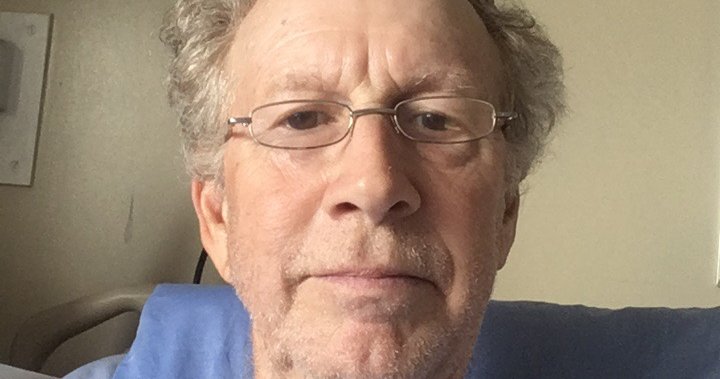The Case of Wayne Wakefield: A Retired Firefighter’s Struggle with ICBC’s No-Fault Insurance
Wayne Wakefield, a retired firefighter, found himself embroiled in a frustrating battle with the Insurance Corporation of British Columbia (ICBC) following a debilitating cycling accident. On May 16, 2023, while riding his e-bike in Vernon, B.C., Wakefield was struck by a vehicle, resulting in severe injuries, including multiple broken ribs, a broken scapula, a broken collarbone, and a concussion. Initially, ICBC provided coverage for his physical injuries and mental health support, offering a glimmer of hope for recovery. However, this support abruptly ended in December 2023, leaving Wakefield reeling from the sudden withdrawal of crucial care. ICBC’s decision, he claims, disregarded the recommendations of his medical team, including his doctor, physiotherapist, massage therapist, and mental health counselor, all of whom advocated for continued treatment. This abrupt termination of benefits underscores a critical issue within British Columbia’s no-fault insurance system, a system that has drawn increasing criticism for its perceived unfairness to accident victims.
At the heart of the matter lies the principle of no-fault insurance. In this system, individuals injured in motor vehicle accidents are barred from suing the at-fault driver, instead relying solely on ICBC for compensation. While proponents argue that no-fault insurance streamlines the claims process and reduces legal costs, critics contend that it deprives victims of their right to seek full and fair compensation for their injuries and suffering. Wakefield’s case exemplifies the challenges faced by those navigating this system. He feels abandoned by the very institution designed to protect him, left to grapple with the physical and emotional aftermath of his accident without adequate support. The abrupt cessation of benefits has not only disrupted his recovery but also added a layer of financial and emotional stress to his already challenging situation. This predicament highlights the vulnerability of accident victims within a no-fault system, where their access to necessary care is ultimately determined by the insurer’s assessment, which can sometimes be perceived as arbitrary and insensitive to individual needs.
Wakefield’s experience resonates with the concerns raised by legal professionals who have witnessed firsthand the shortcomings of BC’s no-fault insurance. Kyla Lee, a lawyer with Acumen Law, points to the growing number of complaints from clients who feel unjustly treated by ICBC. She emphasizes the power imbalance inherent in the system, where ICBC holds considerable sway over the compensation process. This imbalance is particularly challenging for those without the resources to hire legal representation or who struggle to find lawyers willing to take on cases against ICBC, especially given the limited compensation often awarded by the Civil Resolution Tribunal. This, in essence, creates a two-tiered system where those with financial means can better advocate for their rights, while others are left at the mercy of the insurer’s decisions. Wakefield’s case underscores this vulnerability, highlighting the difficulties faced by ordinary citizens seeking redress within a system seemingly stacked against them.
Further complicating Wakefield’s situation are ICBC’s justifications for terminating his benefits. The insurer attributes his PTSD and anxiety to a previous incident during his firefighting career six years prior. This assertion is based on the assessment of an unnamed expert hired by ICBC, an individual Wakefield never met or spoke with. This lack of transparency and direct interaction raises concerns about the validity of the assessment and the fairness of the process. Similarly, ICBC links his physical injuries to a previous bike injury, despite Wakefield’s assertion of full recovery. These seemingly arbitrary connections highlight the challenges individuals face in disputing ICBC’s determinations, particularly when the insurer relies on internal assessments without providing the claimant an opportunity to directly address the expert’s findings. This practice underscores the perceived power imbalance and the difficulty in challenging ICBC’s decisions, leaving injured individuals feeling powerless and unheard.
In response to media inquiries, ICBC issued a statement acknowledging Wakefield’s case and promising to reach out to him to "better understand his current situation and his recovery from injuries related to the crash." The statement details the 120 treatments provided, along with wage loss benefits and compensation for permanent injuries. ICBC maintains that following a review last spring, the decision was made to discontinue funding for additional counseling and income replacement, but that Wakefield was informed of his options to dispute the decision. The insurer emphasizes that individuals experiencing setbacks in their recovery may be eligible for further accident benefits. This statement, while acknowledging the case, reiterates ICBC’s position and highlights the formal avenues available for dispute resolution. However, it fails to address the core concerns raised by Wakefield and legal experts regarding the fairness and transparency of the process itself.
The case of Wayne Wakefield illuminates the complex challenges inherent in BC’s no-fault insurance system. While designed to expedite claims and reduce legal battles, the system has faced criticism for potentially marginalizing the needs of accident victims. Wakefield’s experience underscores the difficulties individuals face in securing necessary care and challenging ICBC’s decisions, particularly when facing financial and logistical barriers. His story serves as a stark reminder of the need for ongoing review and potential reform within no-fault insurance systems to ensure fairness, transparency, and adequate support for those injured on the road. It raises fundamental questions about the balance between streamlining claims and upholding the rights of accident victims to receive the comprehensive care they require for a full and just recovery.










